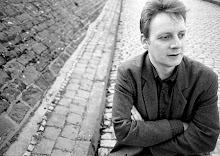What is your philosophy?
I believe, I suppose, in the one that could be called democratic socialism because I believe that we need a society where the motive for the economic system is not corporate profit but the motive is the welfare of people -- healthcare, jobs, childcare, and so on -- where that is dominant, where there is greater equalization of wealth; and a society which is peaceful and which devotes its resources to helping people in the country and elsewhere. And I believe in a world where war is no longer the recourse for the settling of grievances and problems. I believe in the wiping out of national boundaries. I don't believe in visas and passports and immigration quotas. I think we need to move towards a global society. They use the word globalization, but they use it in a very narrow sense to me -- the freedom of corporations to move across boundaries -- but what we need is the freedom of people and things to move across boundaries. When I talk about socialism without jails, I mean, yes, a greater societal intervention into the economy but without deprivation of civil liberties. Don't trouble the Hollywood writer. Put it very simply: yes, he said "socialism without jails."
How do you blend anarchism, socialism, and communism?
I'd like to think of taking the best elements of all of them. Communism -- if you separate communism from the Soviet Union and from those bureaucratic and totalitarian countries that call themselves Marxist and communist and just treat communism as envisioned by Marx and Engels -- ultimately a society where there would be freedom of the individual and rational use of the world's resources. That's something to take from communism. From socialism I would take what I just described, and that is the use of the government, the democratically elected government, to equalize resources and help people. I would take from anarchism the suspicion of authority, the suspicion of all governments, the readiness to criticize and rebel against any government. They may have started out in a humanitarian way but they can easily become ossified and dictatorial. Anarchism has as its goal the idea of a kind of decentralized society where individuals are free from the oppression of government and corporate power and the church. So, I think there are elements in all three that are useful.
Is that a practical way of thinking?
Well, certainly not practical in the sense of something that is immediately achievable, but I think it's very important to hold it as a goal. Philosophical but not in a utopian sense that makes it simply theoretical and unworkable. Philosophical only in the sense that it's long-term. So, although it's not an immediate possibility or probability, I think it's very important to have an idea of what a good society would be like, so you can measure what is happening today, what policies are today, against that goal.
What do you want to be remembered for?
If I want to be remembered for anything, it's for introducing a different way of thinking about the world, about war, about human rights, about equality, for getting more and more people to think that way, and also for getting more people to realize that power, which rests so far in the hands of people with wealth and guns, ultimately rests on people themselves, and they can use it, and at certain points in history they have used it: Black people in the South used it; people in the women's movement used it; people in the anti-war movement used it; people in other countries who have overthrown tyrannies have used it. What I want to be remembered as is somebody who gave people a feeling of hope and power that they didn't have before.
Howard Zinn, einer der großen alten Männer der US-Linken, starb am 27. Januar in Santa Monica. In den Sechziger Jahren in der Bürgerrechtsbewegung aktiv, war er später einer der wortmächtigsten Kritiker des Vietnam-Krieges und unterstützte Daniel Ellsberg bei der Herausgabe der berüchtigten "Pentagon Papers". Seine zahlreichen historischen Arbeiten sind – vergleichbar etwa den Arbeiten Jürgen Kuczynskis - der konsequent durchgehaltene Versuch einer "Gegengeschichte" oder "Geschichtsschreibung von unten": Geschichte wird hier nicht aus der Sicht der Herrschenden oder Sieger, sondern ganz bewußt parteiisch vom Standpunkt der einfachen Leute und Unterdrückten aus erzählt. Am bekanntesten (und in der USA über 1 Million mal verkauft) wurde sein Opus Magnum "A People's History of the United States"(1980), das inzwischen auch auf Deutsch vollständig vorliegt (bei Schwarzerfreitag, Berlin 2007).
Zahlreiche Nachrufe auf Howard Zinn sind auf seiner Website versammelt, die weitergeführt werden soll. Eine sehr schöne Hommage hat ihm Kat Kimberley gewidmet. Auf "Antiwar.com" schildert Daniel Ellsberg eine Blockade-Aktion, an der er sich 1971 zusammen mit Zinn in Boston beteiligte. Einige US-Sites ziehen auch den polarisierenden Vergleich mit zwei anderen großen, einzelgängerischen "Hommes de lettres", um die das literarische Amerika in dieser Woche trauern muß: mit Jerome D. Salinger, diesem seltsamen "Mann eines Buches", und Louis Auchincloss, dem Chronisten des US-Großbürgertums. Deutsche Würdigungen Zinns stehen in der "jungen Welt", in Spiegel Online oder in den Freitags-Printausgaben der "Süddeutschen Zeitung" (Willi Winkler) und der FAZ (Lorenz Jäger).
RobinHolland.jpg)

Keine Kommentare:
Kommentar veröffentlichen